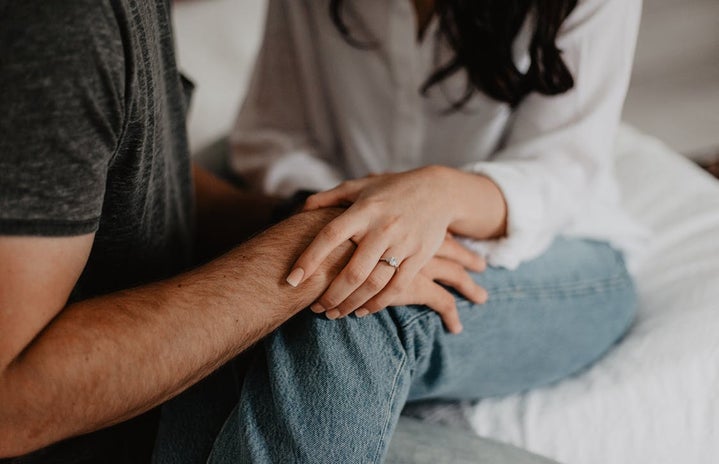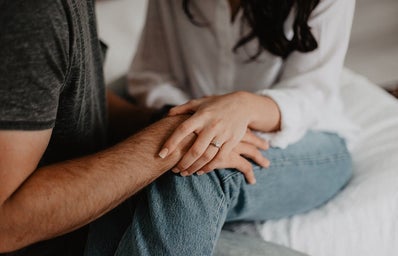Just under ten years ago, I began my first romantic relationship, and when it ended, I was left with unresolved conflict and a false sense of self. My second relationship was destructive from the very beginning, and even when I could acknowledge the unhealthiest, I stayed in that relationship for eight months. My third relationship was the shortest, leaving me feeling like I was the problem, resulting in my avoidance of men and evading current friendships for the next two years. After these relationships, I developed numerous issues.
- Trust issues
- Unable to share my emotions/feelings
- Fear of rejection
- Avoiding social situations
- Shyness
All these emotions and worries culminated into a general fear of intimacy. I constantly avoid being vulnerable around everybody for fear of judgment, rejection, and betrayal. I think of it as a brick wall, with me on one side and everybody else on the other side. This brick wall has its benefits; I can emotionally separate myself from everybody seamlessly because I don’t keep them very close, to begin with.
The downside to this brick wall is the decision I’m faced with when I occasionally crave social interaction or platonic connections. I’m stuck with climbing over the brick wall, terrifying and exhausting myself in the process. Whether it’s spending an hour rewriting a paragraph long “hey, how are you doing?” text repeatedly. Mustering up the courage to post a picture of myself on Instagram and not disable the comments section. Or going out to a special event on my own. Whatever the case, I psyche myself up and try to climb over that wall, but as I sit on top of the wall, I’m left with the last decision.
Do I take the final jump?
Reacquainting myself with everyone on the other side. No, I don’t. I won’t send that text, I won’t go out to that event, and I may post that picture, but it’ll only stay up for a few days before it’s taken down. So, I turn around and hop back down to my side of the brick wall.
As for my romantic relationship, I’ve learned to trust my partner, but I constantly struggle with sharing my emotions and resolving conflicts.
I know these issues won’t go away overnight, but for those who have struggled with something similar, I’ve learned some coping skills in the past couple of years.
Identifying Your Triggers
Triggers are associated with Trauma. Therapy For Black Girls explains it best.
“Trauma does not always travel alone because why make life easier, right? Its sidekicks, infamously known as triggers, like to hang around. See, triggers are like the popular kids in school who are only popular for something terrible everyone knows about them (think Regina George). What do we know about triggers? We know that triggers make people feel as though they’re reliving the traumatic event. Triggers prompt an increase or return of trauma symptoms.”
In my personal experience, I’ve come to recognize that my triggers are primarily feelings/emotions. My triggers are feelings of rejection, judgment, and distrust in people. Knowing what triggers me has helped me learn how to communicate and understand my mind and what it’s going through. Knowing your triggers can allow you to feel more control over yourself and teaches you emotional management.
Seek Professional Help
For many communities of color, talking to a random person about your feelings and current issues can be frowned upon. But trust me, speaking to someone such as a therapist or life coach can be refreshing and eye-opening. Therapists and life coaches exist to provide you with all the tools to help you improve your well-being.
- Safe space to discuss past Trauma
- Coping exercises
- Resources to support groups
- Analyze behavior
- Set goals
For students, many universities have free counseling, emotional management workshops, and AA/NA groups available for free. Take advantage of these resources and remember there is no shame in asking for help.
Talk About It
The more I talk about my feelings and how they affect me, the easier it is to combat them. While I still have my fears and am heavily influenced by my triggers, I still recognize that I’ve made a significant amount of progress considering how long I’ve been dealing with this problem. Talking to at least one person can make all the difference, and maybe you’ll get comfortable enough to share your story like me.


